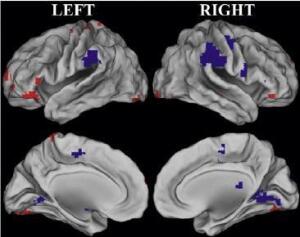by
Christina Hwang, Contributing Reporter | July 20, 2016

Memory decline may be caused by
what information brain focuses on
Credit: N. Rajah, McGill University
As a person becomes middle-aged or older, the inability to remember details may be more common, and new research is showing that it may be due to changes in the information that the brain focuses on, rather than a decline in brain function.
In the study, McGill University researchers used functional MRI (fMRI) on 112 healthy adults between 19 and 76 years old to analyze which parts of the brain were activated when performing a task of remembering faces.
The participants had to recall whether a particular face appeared on the left or right side of a screen, and if it appeared most recently or least recently.



Ad Statistics
Times Displayed: 174776
Times Visited: 3187 For those who need to move fast and expand clinical capabilities -- and would love new equipment -- the uCT 550 Advance offers a new fully configured 80-slice CT in up to 2 weeks with routine maintenance and parts and Software Upgrades for Life™ included.
The team found that young adults had activated their visual cortex and were successful in recalling the faces. “They are really paying attention to the perceptual details in order to make that decision,” said senior author Dr. Natasha Rajah, director of the Brain Imaging Centre at McGill University’s Douglas Institute, and associate professor in the department of psychiatry, in a statement.
For middle-aged adults and older participants, their medial prefrontal cortex was activated, a part of the brain that is involved in dealing with one’s own life and mental and emotional processes. Their visual cortex was not activated to the same degree as the young adults.
The image depicted below shows where the medial prefrontal cortex was more active (red areas) for middle-aged and older adults. In young adults, the blue regions — which include areas important for memory and attention — were more active.
N. Rajah, McGill University
The middle-aged and older group did not perform as well as the young adults but Rajah said that it may be wrong to think that they have brain impairments. She said that their lack of performance may simply reflect on what they consider to be important information.
She also said that middle-aged and older adults could improve their recall abilities by learning mindfulness meditation, since other studies have shown that mindfulness meditation is related to better cognitive aging.
Currently, the researchers are analyzing data from a similar study to determine if there are any gender differences in middle-aged brain function when related to memory.
Back to HCB News

